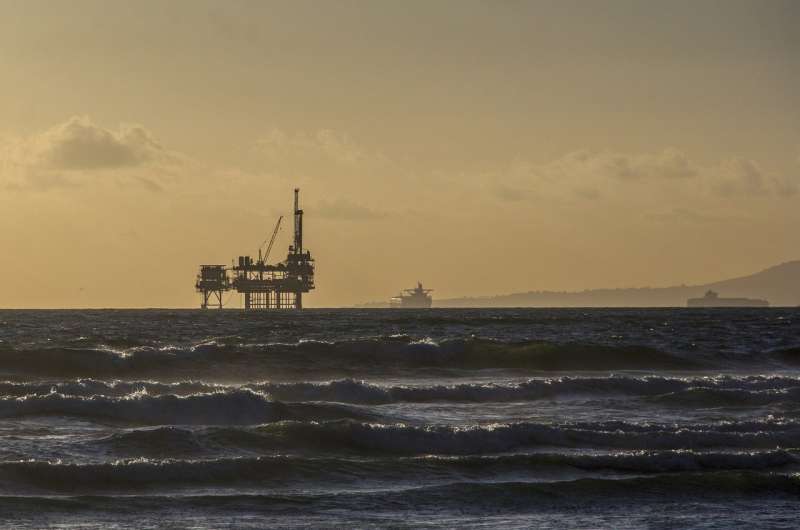This article has been reviewed according to Science X's editorial process and policies. Editors have highlighted the following attributes while ensuring the content's credibility:
fact-checked
trusted source
proofread
What should we do with aging marine structures?

Marine artificial structures (MAS), such as oil and gas platforms and offshore wind farms, have a finite operational period and will eventually need to be decommissioned.
But, with current legislation for the northeast Atlantic requiring nearly all structures to be completely removed at end-of-life at significant financial cost, does the science support this as the best solution?
Dr. Anaelle Lemasson has co-authored an article that suggests legislation forcing the removal of end-of-life offshore structures needs to be revised to allow other decommissioning options, such as "rigs-to-reefs" repurposing, that could have environmental and socio-economic benefits.
The authors say that politics, rather than science, has been the driving force for decisions about how to decommission MAS.
In addition, they argue a review of decommissioning strategies "is urgently needed to ensure that governments make scientifically motivated decisions about the fate of oil rigs in their regions, rather than sleepwalking into default strategies that could harm the environment."
The Comment article is published in Nature, in collaboration with University College Cork and Plymouth Marine Laboratory.
By 2030, several thousand platforms will need to be decommissioned, and many international governments have 2050 targets of achieving net zero to mitigate global climate.
Decarbonization and the move away from reliance on fossil fuels is a key component of those net zero efforts, placing the decommissioning of existing offshore infrastructure front and center of the challenge.
Many of the structures we see in the ocean today were put in place at a time when environmental considerations weren't in people's minds.
"There were also no legal requirements covering possible environmental impacts, or what might happen to these structures once they reached the end of their useful lives," says Lemasson, post-doctoral research fellow at the University of Plymouth.
"That is certainly changing, and transitions away from fossil fuels mean it is vital we have this debate now. It is also critical that we learn lessons from the past, particularly at a time when increases in offshore renewable energy (ORE) installations are likely to result in more artificial structures being sited out at sea."
We advocate decommissioning legislation is modified to allow for alternative decommissioning options on a case-by-case basis rather than continuing with the one-size-fits-all approach. In the northeast Atlantic, change ought to allow for alternative options to complete removal, where and when it has been shown that the costs and benefits to the environment and society outweigh those of removal.
"And where conversion of rigs-to-reefs has been allowed, we advocate for the collection of robust, objective scientific data for an environmental and societal cost-benefit analysis to ensure transparent and evidence-based decision-making. Our comment outlines a framework for local government to assess the best way to decommission offshore rigs," says Dr. Antony Knights, senior lecturer in Environmental Sustainability at University College Cork and lead author of the article.
More information: Antony Knights et al, The world must rethink plans for ageing oil and gas platforms, Nature (2024). DOI: 10.1038/d41586-024-00645-0
Provided by University of Plymouth





















